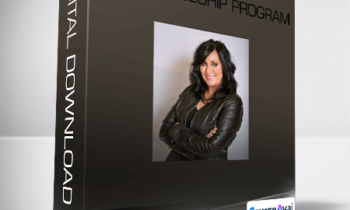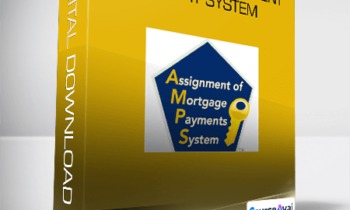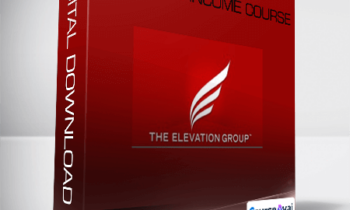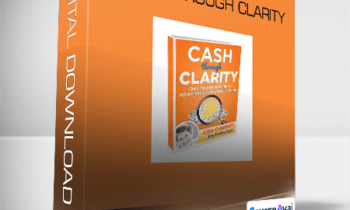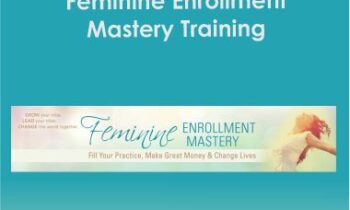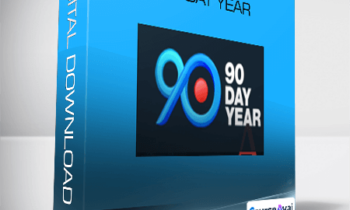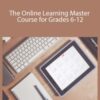$97.00 Original price was: $97.00.$25.00Current price is: $25.00.
Instant Download: You will receive a download link via your order email immediately
Save up to 85% compared to Salepage prices. In addition, earn additional points. Save more on your next order.
Please contact email: esygbteam@gmail.com if you have any questions about this course.
 Purchase this course you will earn 25 Points worth of $2.50
Purchase this course you will earn 25 Points worth of $2.50Elevate your skills with the A.J. Juliani – The Online Learning Master Course for Grades 6-12 course, available for just $97.00 Original price was: $97.00.$25.00Current price is: $25.00. on Utralist.com! Browse our curated selection of over 60,000 downloadable digital courses across diverse Everything Else. Benefit from expert-led, self-paced instruction and save over 80%. Start learning smarter today!
 A.J. Juliani – The Online Learning Master Course for Grades 6-12
A.J. Juliani – The Online Learning Master Course for Grades 6-12
Preparing Flexible and Adaptable Instruction and Assessment for In-Person, Hybrid/Concurrent, or Online Learning Environments
The best Online learning is planned. The problem for many of us right now, is that we don’t have the time to plan for it.
Online learning experiences are developed and designed with the same care and time that we have put into crafting our in-person learning experiences over the years. Online learning is a lot of work, but it can support our learners in many of the same ways that our in-person experiences do.
Our move into emergency remote teaching and concurrent/hybrid environments has it’s challenges:
Online education, including online teaching and learning, has been studied for decades. Numerous research studies, theories, models, standards, and evaluation criteria focus on quality online learning, online teaching, and online course design. What we know from research is that effective online learning results from careful instructional design and planning, using a systematic model for design and development.7 The design process and the careful consideration of different design decisions have an impact on the quality of the instruction. And it is this careful design process that will be absent in most cases in these emergency shifts.
Now, as we look forward to a new season of remote learning, we face the uncertainty of what school will look like, but we know there will be a need for online learning for some (if not all) students, and some (if not all) of the school year.
That is why this course exists.
During the last few months I’ve done more reading, researching, and creating on remote, distance, and online learning than ever before. I’ve worked with a dozen schools and districts on the current situation and planning for what comes next. Our community has put on webinars, summits, and online events meant to support the work teachers, school leaders, and parents are doing around the world.
Through all of this I’ve been developing this course. One that I ed to create during my Master’s Degree program in Global and International Education at Drexel University, and that I’ve continued to refine while teaching online courses for the Penn Literacy Network at UPenn Graduate School of Education.
This work of moving towards adaptable instruction and assessment has always been important, but now it is imperative.
The Online Learning Master Course focuses on how to prepare for flexible learning environments (in-person, hybrid/concurrent/parallel, and online) that call for adaptable instruction and assessment.
Together we’ll walk through the research and practices that may never replace face-to-face instruction, but can provide an engaging and empowering learning experience for our learners.
The Online Learning Master Course Has Everything You Need to Plan and Develop Flexible and Adaptable Learning Experiences
Self-Paced Modules with Videos, Audio, and PDF Guides (now also in Spanish)
Our self-paced modules are fully developed. Each has a video (full transcript and Spanish version available), reflection questions, resources, and downloads.
Practical Resources You Can Use with Learners Right Away
Over 2100 educators have taken this course over the past few months. We’ve had 65 schools put their entire staff through the course. That’s why we’ve created ready to use resources in each module.
Backed By Research and Case Studies in Online Learning
Online learning has been around for awhile now. It may look different with full remote, hybrid/concurrent, or what you are doing right now. However, we can focus on real case studies and research to inform our practice.
Self-Paced Structure with On Demand Modules
Each Course Module Is Self-Paced and Ready to Access Over and Over Again
Modeling asynchronous and self-paced online learning, the course follows a schedule and you have access to the content/materials forever.
Module 1:
The Human and Social Need in Online Learning
Module 2:
Emergency Remote Learning vs Online Learning
Module 3:
Planning for Online Learning
Module 4:
Engaging Instruction in Online Learning
Module 5:
Conferencing and Feedback in Online Learning
Module 6:
Assessments in Online Learning
Module 7:
Your Roadmap to Online Learning
Dig further into the course outline and curriculum below (press the arrow to expand the full curriculum).
What’s Inside: The Course Curriculum
- Introduction: Guided Notes
- Lesson 1: Why Adaptable Instruction and Assessment Are Needed More Than Ever(10:18)
- Lesson 2: Moving from Theory (Research) to Practice (What Actually Works)(8:09)
- Lesson 3: How to Use This Course(3:39)
- Lesson 4: Self-Paced (Asynchronous) vs Live Instruction (Synchronous)(10:14)
- Lesson 5: Tech vs No-Tech – How to Make it Work(8:52)
- Lesson 6: Our Community – A Flywheel Approach(3:53)
- Module 1: Guided Notes
- Lesson 1: Equity In Every Lesson(11:04)
- Lesson 2: Building and Sustaining Relationships(10:35)
- Lesson 3: Collaborating with Colleagues/Staff(10:54)
- Lesson 4: Communication with Families(9:35)
- Lesson 5: Communication with Students(13:14)
- Module 2: Guided Notes
- Lesson 1: Shifting from Emergency to Prepared Online Learning(17:12)
- Lesson 2: Social and Emotional Learning in Online Learning Environments(11:51)
- Lesson 3: Your Experience and Suggestions(5:34)
- Module 3: Guided Notes
- Lesson 1: The Research(13:22)
- Lesson 2: Backwards Planning Strategies(15:21)
- Lesson 3: The Nine Dimensions of Online Learning(7:18)
- Lesson 4: Turning Traditional Units into Meaningful Online Learning(16:54)
- Lesson 5: A Plan for Classroom Management(11:25)
- Lesson 6: Universal Design for Learning Approach(21:21)
- Lesson 7: Design-Thinking Framework for Planning(6:50)
- Module 4: Guided Notes
- Lesson 1: The Research(11:08)
- Lesson 2: Asynchronous Strategies(13:51)
- Lesson 3: Synchronous Strategies(21:42)
- Lesson 4: Blended Strategies (and going back and forth)(12:02)
- Lesson 5: Culturally Relevant Practices(49:54)
- Lesson 6: Choice Boards, Playlists, and Flexible Paths(7:19)
- Lesson 7: Project-Based Approach(11:29)
- Module 5: Guided Notes
- Lesson 1: The Research(12:36)
- Lesson 2: The Feedback Loop(8:46)
- Lesson 3: Conferencing Structures, Strategies, Tools(8:39)
- Lesson 4: Small Group Structures, Strategies, Tools(10:28)
- Module 6: Guided Notes
- Lesson 1: The Research(13:35)
- Lesson 2: Formative Strategies(10:02)
- Lesson 3: Summative Strategies(11:50)
- Lesson 4: Performance Tasks(14:48)
- Lesson 5: Mastery Approach to Assessment(6:33)
- Module 7: Guided Notes
- Lesson 1: Mapping Your Course/Unit(10:06)
- Lesson 2: Developing Performance Tasks for Assessments(9:51)
- Lesson 3: Choosing Structures(7:39)
- Lesson 4: Identifying Tools(6:07)
- Lesson 5: Asynchronous Game Plan(4:40)
- Lesson 6: Synchronous Game Plan(6:27)
- Lesson 7: Highlighting What Works (and Improving Where Needed)(11:10)
- Lesson 8: Putting It All Together(6:30)
Hi, I’m A.J. Juliani
And this is my obligatory cheesy photo! I’m the father of four school aged children, who all had to learn online this past spring. I’ve also worked as a teacher and school administrator in a number of roles across the K-12 spectrum.
My degree in Global and International Education from Drexel, and roles as an online course creator and facilitator at UPenn GSE (PLN) and Director of Learning and Innovation, have led to planning, creating, and running multiple online programs and courses.
I’m still making mistakes as an instructor who has planned for, tweaked, iterated, and constantly improved online courses for almost a decade
This course will continue to be a work-in-progress, as we iterate and improve the content, material, and resources throughout the years!
Proof Content

Sale Page: https://adaptablelearning.teachable.com/p/online-learning-master-course
Archive: https://archive.ph/wip/FNOc6
Delivery Method
Cultivate continuous growth with the A.J. Juliani – The Online Learning Master Course for Grades 6-12 course at Utralist.com! Unlock lifetime access to premium digital content, meticulously designed for both career advancement and personal enrichment.
- Lifetime Access: Enjoy limitless access to your purchased courses.
- Exceptional Value: Benefit from savings up to 80% on high-quality courses.
- Secure Transactions: Your payments are always safe and protected.
- Practical Application: Gain real-world skills applicable to your goals.
- Instant Accessibility: Begin your learning journey immediately after buying.
- Device Compatible: Access your courses seamlessly on any device.
Transform your potential with Utralist.com!
Related products
= 89 Points
Everything Else
= 47 Points
Everything Else
= 137 Points
Everything Else
= 71 Points
Everything Else
= 45 Points
Everything Else
= 85 Points
Everything Else
= 128 Points
Everything Else
= 81 Points



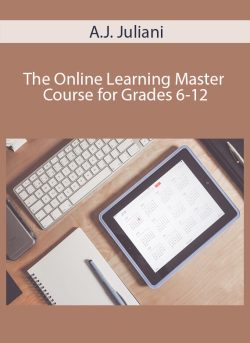
 A.J. Juliani – The Online Learning Master Course for Grades 6-12
A.J. Juliani – The Online Learning Master Course for Grades 6-12